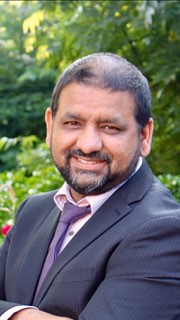BAME COMMUNITIES & DEMENTIA
Interview with Mohammad Rauf, Founder & Director at Meri Yaadain CIC.
September is World Alzheimer’s Month. Run by Alzheimer’s Disease International, (ADI), the aim of the month is to raise awareness and challenge stigma surrounding Alzheimer’s and dementia.
The event has been running since 2012, and September 21st is World Alzheimer’s Day. As part of the build-up, the Dost project spoke with Mohammad Rauf, Founder & Director at Meri Yaadain CIC, which works with BAME communities who face barriers in accessing information, services and advocacy around Dementia.
What are some of the myths and stigmas surrounding dementia among BAME communities?
One of the problems for our communities is the awareness – there is no word for dementia in our community languages. We tend to think about mental ill-health. In some south Asian communities we use the word ‘pagal’ meaning insane or crazy. It’s a similar tale in some far Eastern communities. Within some African communities there is a tendency to label it as ‘witchcraft’. So people look at it as that instead of as a physical change in the brain.
And then there’s issues within the community. Lack of understanding means those doing the caring are doing so without really knowing what they are dealing with. In the wider community, there’s the expectation that you should be looking after your own elders without knowing what’s going. If you are seeking help from agencies and organisations, families, friends, and neighbours think that you’re doing a disservice, that you should be the one taking the care.
How do you combat some of the misconceptions given how far modern science has come in identifying the causes and signs of dementia?
There has to be a recognition of world realities. our social construct is taken from the world around us. where do we get our information and knowledge from, what kind of schooling have we had, what kind of culture and society have we grown up with. that gives us our values, ethics, and expectations. Within BAME communities, there is a higher precedence of the wider family being more important than the nuclear family. The extended family has a right to have a say on things often. Thinking of western societies, they may operate on a more scientific basis. if we don’t understand something we go back to our social constructs. So, is dementia part of the normal aging process, and so is the belief that the person will start being more ‘crazy’? Perhaps somebody is becoming aggressive, forgetful, they can’t explain whether they’re hurting. Their aggression may come out of an inability to communicate. Whereas we may see them as just becoming aggressive. that creates tension among families, who then don’t want to talk about those stresses. so rather than going to a GP and saying ‘look I’m a bit worried about their erratic behaviour”, they might go and say ‘I don’t sleep well’ or ‘my head hurts’ – it becomes more psychosomatic in terms of dealing with things rather than dealing with the reality. if we know about it we can get the help and information.
The other conversation is that if we can’t access culturally appropriate services then how can we get the help that we need, so we tend to stick at home. And then practitioners tend to think that we look after our own.
How important is it that the NHS continues to work in partnership with community based organisations like Meri Yaadain?
Lots of people have the right mindset and want to make a difference, engage, listen and learn, and provide the right kind of support to families. But there are also lots of people who, maybe due to ignorance or unconscious bias, may want to do well but either for fear of making a mistake or a lack of understanding, say ‘our doors are open, why don’t they come to us?’. Rather than looking at the fact that, if carers don’t understand what dementia is how would they know what help to access? Minority communities tend to look at more practical needs rather than emotional needs. We might say that you can join a carers group to see how you can think, feel the communities might say ‘what help can I get with transport to go to the GP?’, ‘what difference can I make in the home?’, ‘they’re not sleeping well at night and I’m tired during the day, how do I manage that?’.
Organisations like ours can help bridge that gap of understanding and awareness for not just the community but for the practitioners as well.

